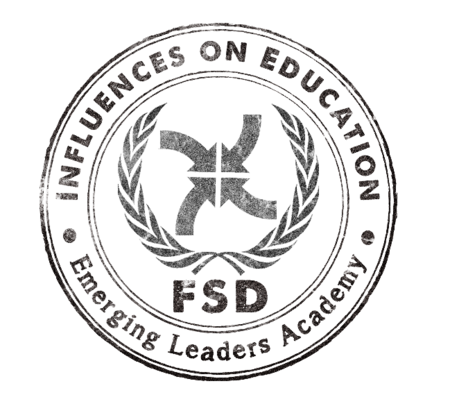FSD Emerging Leaders
Page Navigation
- Welcome to the Emerging Leaders Academy!
- CPSEL 1 - Development and Implementation of a Shared Vision
- CPSEL 2 - Instructional Leadership
- CPSEL 3 - Management and Learning Environment
- CPSEL 4 - Family and Community Engagement
- CPSEL 5 - Ethics and Integrity
- CPSEL 6 - External Context and Policy
- Emerging Leaders Academy Reflection
-
CPSEL 6 - External Context and Policy
-
Standard 6
Understanding, responding to, and influencing the larger political, social, economic, legal, and cultural context.-
Work with the governing board and district and local leaders to influence policies that benefit students and support the improvement of teaching and learning.
-
Influence and support public policies that ensure the equitable distribution of resources and support for all subgroups of students.
-
Ensure that the school operates consistently within the parameters of federal, state, and local laws, policies, regulations, and statutory requirements.
-
Generate support for the school by two-way communication with key decision-makers in the school community.
-
Collect and report accurate records of school performance.
-
View oneself as a leader of a team and also as a member of a larger team.
-
Open the school to the public and welcome and facilitate constructive conversations about how to improve student learning and achievement.
-

-
CPSEL 6: Standard, Elements, and Example Indicators
From the Commission on Teacher Credentialing, 2014
STANDARD 6: EXTERNAL CONTEXT AND POLICY
Education leaders influence political, social, economic, legal and cultural contexts affecting education to improve education policies and practices.Element 6A: Understanding and Communicating Policy
Leaders actively structure and participate in opportunities that develop greater public understanding of the education policy environment.
Example Indicators:
6A-1 Operate consistently within the parameters of federal, state, and local laws, policies, regulations, and statutory requirements.
6A-2 Understand and can explain the roles of school leaders, boards of education, legislators and other key stakeholders in making education policy.
6A-3 Welcome and facilitate conversations with the local community about how to improve learning and achievement for all students, including English Learners, and students needing additional support.
6A-4 Facilitate discussions with the public about federal, state and local laws, policies, regulations, and statutory requirements affecting continuous improvement of educational programs and outcomes.
6A-5 Work with local leaders to assess, analyze and anticipate emerging trends and initiatives and their impact on education.
Element 6B: Professional Influence
Leaders use their understanding of social, cultural, economic, legal and political contexts to shape policies that lead to all students to graduate ready for college and career.
Example Indicators:
6B-1 Advocate for equity and adequacy in providing for students’ and families’ educational, linguistic, cultural, social-emotional, legal, physical, and economic needs, so every student can meet education expectations and goals.
6B-2 Support public policies and administrative procedures that provide for present and future needs of all children and families and improve equity and excellence in education.
6B-3 Promote public policies that ensure the equitable distribution of resources and support services for all students.
Element 6C: Policy Engagement
Leaders engage with policymakers and stakeholders to collaborate on education policies focused on improving education for all students.
Example Indicators:
6C-1 Work with the governing board, district and local leaders to influence policies that benefit students and support the improvement of teaching and learning.
6C-2 Actively develop relationships with a range of stakeholders, policymakers, and researchers to identify and address issues, trends, and potential changes that affect the context and conduct of education.
6C-3 Collaborate with community leaders and stakeholders with specialized expertise to inform district and school planning, policies and programs that respond to cultural, economic, social and other emerging issues.

